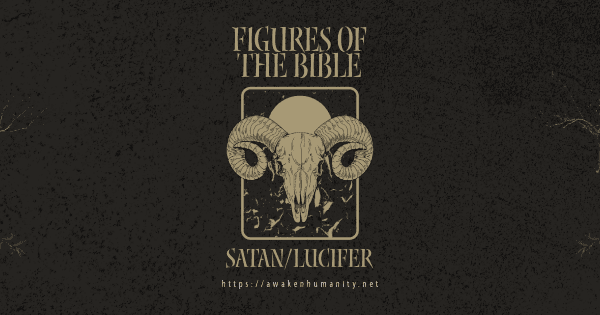Names and Pseudonyms:
Satan: Derived from the Hebrew word for "adversary" or "accuser." This name is used in contexts where he acts as an adversary to God or mankind (e.g., Job 1:6-12, Zechariah 3:1-2).
Devil: From the Greek "diabolos," meaning "slanderer" or "one who throws something across" (e.g., Matthew 4:1-11).
Lucifer: Literally "light-bearer" in Latin, used once in Isaiah 14:12 in the context of a fallen star or king of Babylon, often interpreted as a reference to Satan before his fall.
Beelzebub: Often linked to Satan, meaning "lord of the flies" or "lord of dung" in some interpretations (e.g., Matthew 12:24).
The Serpent: In Genesis 3, Satan appears as a serpent to deceive Eve.
The Dragon: In Revelation, particularly Revelation 12:9, he is identified as the great dragon, the old serpent, called the Devil, and Satan.
The Tempter: Recognized in contexts where he tempts individuals, like in the temptation of Jesus (Matthew 4:3).
Genealogy:
The Bible does not provide a direct "genealogy" for Satan in the human sense. However, there are theological interpretations:
Created as an angel: Ezekiel 28:12-15 describes a figure (often associated with Satan) as being created perfect in beauty and wisdom, suggesting he was an angel before his fall.
Fall from grace: Isaiah 14:12-15 and Ezekiel 28:16-17 are interpreted by many to describe Satan's pride and subsequent fall from heaven, turning him into an adversary.
Ideology:
Opposition to God: Satan's primary role is to oppose God's will. He seeks to undermine God's plan for humanity, leading them away from obedience to God (e.g., Job 1:6-12).
Deception: He is known for deceit, lying, and misleading both individuals and nations (John 8:44; Revelation 12:9).
Temptation: Satan tempts humans to sin, presenting sin as appealing or beneficial (Genesis 3; Matthew 4:1-11).
Destruction: His actions ultimately lead to destruction, both spiritually and physically (John 10:10).
Ruler of This World: Some New Testament passages refer to him as having some dominion over the world, albeit temporary and under God's ultimate control (John 12:31, 2 Corinthians 4:4).
Satan's ideology revolves around the corruption of God's creation, rebellion against divine authority, and the promotion of self-centeredness, pride, and sin as alternatives to God's commandments. His narrative in the Bible is one of opposition to divine order, using any means to achieve his ends, primarily through deception and temptation.
This portrayal in the KJV reflects a theological understanding where Satan is not just an enemy to mankind but fundamentally opposed to God's sovereignty and goodness.

